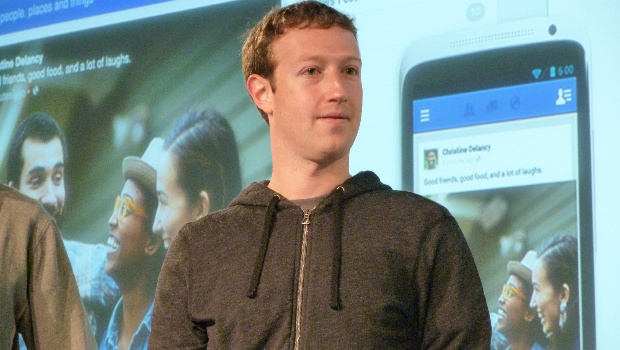Facebook is now an entirely phone-first company. It makes most of its money on mobile and more than a billion of its active users are browsing their News Feeds on a phone. So it makes sense for Facebook to use its F8 conference on Wednesday to give developers the resources they need to build better apps and games for us to use – even if that means no radical redesigns or groundbreaking products.
That’s not to say Facebook had nothing new to say: The network rolled out an Anonymous Login option and a handful of tools for developers and advertisers that will affect the way we use Facebook-integrated apps – and there are plenty of those.
For starters, the Like button that has come to define Facebook is now going to be available in iOS apps that are connected to Facebook. Android apps will soon be able to bake in their own Like buttons.
People can share content from an app to their friends using Facebook Messenger. For instance, if you’re listening to a song on Rdio, you can share that song privately with a friend using the Message Dialog rather than broadcast it to your whole Facebook network.
If you log in to a website using your Facebook account, you can remind yourself to install the site’s app with a Send to Mobile notification.
Those tools are all convenient new options that will also help app creators find new users. But another, larger announcement could change the way we use apps altogether.
A new direction for mobile
Facebook last year bought Parse, a startup that helps app developers on the back end to build better apps. Parse has been working on App Links, which makes linking mobile apps as easy as using a hyperlink on a web page. App Links lets mobile app developers create deep links into other developers’ apps, so when a user clicks a link, it launches another app, and that app already knows what you came to see and where to send you back when you’re done.
Today, clicking a link in a mobile app typically sends users to a browser, and from there, they could go anywhere. Deep linking will let the Spotify app send a user over to the Songkick app to buy concert tickets without having to do a new search, and then pop right back to Spotify and land on the same screen they were using before. Some iOS apps can do this already, but Facebook’s App Links tools are open source and cross-platform, and should help devs link their apps together as seamlessly as they can link websites.
“I hope this is the direction mobile takes for the future,” said Parse founder Ilya Sukhar. “This is how the Web worked, and it’s awesome. Let’s keep it awesome.”
Move fast but be stable
Facebook also used F8 to officially launch its ad exchange, the Facebook Audience Network. Though this doesn’t directly affect users, it does allow app developers and advertisers to target you based on the wealth of information Facebook has collected about you over the years.
Think of F8 has Facebook’s version of Apple’s WWDC or Google I/O. There are often product announcements, but it’s an event largely designed to get developers excited about integrating their work with Facebook (or Apple or Google). Unlike Apple and Google, Facebook’s F8 schedule has been sporadic at best. But Zuckerberg promised that Facebook can be counted on as a dependable resource for developers, even announcing next year’s F8 date to prove it.
Facebook has held four previous F8 developers conferences – one in 2007, 2008, 2010, and 2011 – where Zuckerberg has used the time to launch new products and unveil redesigns. Facebook Timeline was first shown off at F8 in 2011.
“In the past, we’ve had F8 when we had a big new product announcement,” Zuckerberg said in his kick-off keynote address. “Now we’re focused on building a stable mobile platform.”
Say goodbye to the days of “Move fast and break things”. Facebook’s new mantra, “Move fast with stable infra,” may not be as catchy – or look as good on a sign – but who needs a slogan when you’re a full-fledged, worldwide media and advertising organisation? Not Facebook.








Subscribers 0
Fans 0
Followers 0
Followers